- Home
- Brand, Max
Man From Mustang Page 2
Man From Mustang Read online
Page 2
Ned Kenyon looked wistfully at the golden stallion, and then he sighed.
“You know your own self and your own horse better than anybody else,” he observed. “And it’s the seeing of a man like you, Arizona, with a horse like that, that makes me wonder how Edith can look at me once and want to look at me twice. But I remember folks saying years ago that the likes of men for women and women for men there’s no accounting for. Only, when I think of you, riding on a horse like that — well, I can’t help thinking that Edith may shake her head a coupla times. Only I know that there’s nothing in her but faith. For what would the world amount to, Arizona, if there was anything behind a face and an eye and a voice like hers except truth and honesty, and the kind of love that won’t die in a long winter?”
Silver, listening to this speech, which was drawled out with a good many pauses, while Ned Kenyon found proper words to express himself, looked several times down to the ground, and several times with his narrowed eyes peered into the horizon like a hawk.
He said at last: “A man or a woman that lied to you, Ned, would need a hanging; and I’d be glad to pull on the rope!”
“Would you, Arizona?” asked the simple man. “I think you mean it, too. I think it’s been a great day for me, Arizona. Because, look here — a man can’t live by a woman only, but he needs a friend, too. And I don’t know that I’ve ever had a real friend in all my born days.”
“Never a friend?” asked Silver. “Do you mean that, Kenyon? Do you mean that you’ve seen through the lot and found them all a worthless gang?”
“Looked through them?” echoed Kenyon. “Man, man, who am I to be looking through folks? No, no! There’s three out of four or four out of five that I would be glad enough to have as friends. I’m no one to make big pretendings. Any right man is a good man for me to talk to and keep to. It’s not my choosing, but the choice of the other people, that doesn’t fall on me. Unless they want to cheat me out of money, or talk kind to me to-day just in order to make a fool of me to-morrow. And so it’s come about that I’ve never had a friend in my life, until to-day it sort of looks as though you might be a friend to me, Arizona!”
He slowed his step and turned his frank, open eye on Silvertip; and the heart of Silver swelled in him.
He put his hand again on the thin shoulder of Kenyon and said carefully, weighing his words: “I’ve had few friends, too. And most of those I’ve had are behind me somewhere.” He made a gesture, as though dropping something over his shoulder. Then he went on: “But I think that you and I could pull together as long as we’re traveling in the same direction. I’d like to tell you this, Kenyon, that I hope you’ll be able to trust me in any pinch — as long as I’m around your part of the world.”
Kenyon held out his hand. It was taken in a firm grasp by Silver as they looked fixedly into the eyes of one another.
Then Kenyon began to laugh out of pure pleasure.
“It’s been a lucky day for me — a right lucky day — if only poor Jerry hadn’t gone! But Jerry was twelve, and every year it was harder for him to do what he wanted and live up to himself. Well, there he was, out fighting on the danger line, and that’s the way that he would have chosen to die, I guess. And I’ll tell you what, Arizona — the Indians all used to believe that when a brave went up to the happy hunting ground, he was sure to find his best horses there before him, waiting.”
He laughed again in some embarrassment, as though he disclaimed a belief in any such superstition. But for a time, as they walked along, his eyes went upward and roved the sky with a blowing rack of clouds, and with such a smile on his lips that Silver knew suddenly what thoughts were running in the mind of his simple friend.
Silver made a fierce and a deep resolve to give mind and heart and hand to this man until that call which moved him irresistibly across the face of the world reached him again, and drew him he knew not where across the sky line.
He was still thinking of this hours later, when they came over a hill into sight of a town, and down a trail not far from them a woman was riding.
“Look!” cried Kenyon. “There’s Mustang — and there’s Edith Alton! Do you need more’n a sight of the way of her to tell that there’s no other woman like her on earth?”
Chapter 3
Mustang was a flourishing centre of trade, as was proved by the five roads that led into it, all whitened by constant travel, to say nothing of the irregular trails that were traced threadlike over the surrounding hills. Mustang Creek darted through the midst of the town, with two bridges over its narrow banks, and scattered groves of pines came down from the hills and right into the town itself. What more could the heart of any mountaineer require than such profusion of wood and water? Moreover, the town was placed where it could serve the great mountain region that tumbled behind it to the north and west, and also send out its freighters through the plains beyond the southern and the eastern hills.
But Silver gave that picture only a glance. Neither did he regard the huge wagon, drawn by fourteen mules, that was rolling down one of the white roads toward Mustang, sending the screech of brakes, like the screaming of hawks or bagpipes, through the still air toward him. What he watched was the girl who came pitching down a trail on the other side of the valley, swerving her horse through brush and among boulders, with the wind of the gallop fanning the brim of her sombrero straight up, and her bandanna fluttering behind her neck like a flag.
“And that’s Edith Alton?” said Silver thoughtfully, shaking his head a little. “She’s a Western girl, then, Kenyon?”
“No more Western,” said Kenyon, grinning, “than Boston and New York. But she’s the sort that knows how to do what other folks do, wherever she goes. She could ride Eastern, and it don’t take much for them to learn to ride Western. I’ve stood and seen her, Arizona — I’ve stood and seen her thrown four times hand running from a pitching broncho, and get up and take the saddle, and never pull leather till that mustang fitted to her like a silk glove and said ‘Yes’ and ‘No’ just the way she wanted! And there she goes, sailing. And that black mare of hers is a piece of silk all over, too. I’d know that mare, and I’d know that girl, by the sassy way they’ve got about them!”
Silver let this talk slip easily through his mind while he studied the disappearing rider. She rode, in fact, as though she had been raised in the saddle. Some of the dark suspicion went out of Silver’s heart, for what Western man can resist the sight of a woman who knows how to ride “straight up and hell bent”?
“She looks like one in a million,” he said to Kenyon. “I suppose you’ve wanted to paint her or do her in words!”
“Paint her? Me? I can paint a barn; I wouldn’t aim to even paint a house except on a bet. Words? I’ve written ten letters in my life, I guess, and that’s about all!”
It seemed to Silver that the last possible way of understanding Kenyon’s hold on this girl had been removed. If there had been mystery before, it was doubly dark now.
They came down into the village, Kenyon explaining why he had been riding across country. He had gone to the nearest railroad to telegraph to his distant parents the news of his approaching wedding, and to buy in a larger town a suit of store clothes that would be a credit to him when he “stood up in church.” But when he and Silver had examined the pack behind the saddle of the dead Jerry, they had found it almost totally consumed.
“It don’t matter so much,” declared Kenyon. “She ain’t the kind to care much about clothes. They wouldn’t make much difference to her! It’s the other things that count with her.”
Every word he spoke, every expression of trust and faith, pulled at the heart of Silver as though he heard them spoken by a child who was about to be disillusioned in this savage world of facts.
They went to the hotel.
“The time you get straightened up,” said Kenyon, “I’ll tell her that you’re coming in to eat supper with us in the dining room. She’ll be right glad. There’s only one other thing. She wants the w
edding to be a surprise to everybody back home; everybody that knows her. She don’t want it to be talked about here. You’ll understand how it is, Arizona?”
Silver nodded and smiled, but his smile was very faint; and as he heard this, something rang like a bell in his mind, and made him surer than ever that the whole thing was a cruel illusion which was being built up around his companion.
After watering the stallion, Silver put Parade into the stable behind the hotel, and saw that he was well-fed with clean hay of barley and wild oats. After that he took a room in the hotel and went up to shave and wash and brush his clothes clean of the dust of the long walk.
He was not tired. That body of his was furnished with steel springs so tempered that no ordinary strain could make an impression on him. And now, with a light step, he went down into the lobby and waited in the little square hall.
The girl came first. He watched her down the stairs. If all the features of her picture had been blurred, he told himself that he would have known her by something high and proud in the carriage of her head. And though she wore a plain khaki riding skirt and the most ordinary of blue silk blouses with full sleeves that ended at the elbows, she seemed dressed for the pleasure of the most critical eye in the world.
She was a smiling girl, of the sort that people like to see even in a stage or a railroad carriage, or in a ballroom, or on a street, merely. Glances trailed after her, and strange expressions of homesickness appeard for a fading moment in the faces of the men in the lobby.
She seemed to know the names of most of them, and she spoke to them all. In another part of the world she would have been surrounded at once, but in the West a woman generally “belongs” to some man, and outsiders are not in haste to rush in and make fools of themselves. She came straight across to Silver and held out her hand.
“Ned told me about you,” she said. “You’re Arizona, and you don’t bother about other names except Jim. And he told me how you saved him from the fire, and that you’re going to have supper with us so that I can thank you.”
He looked straight back into her eyes. As far as he could penetrate them, there was nothing but candor. And yet there was a trick somewhere. It could not be honest. It must be a sham. She had blue eyes, a little stained with shadow on the lower lids, almost as though with a cosmetic. Her brow was as clear as a sculptor’s marble. He could not find a place to put his finger and say that this or that might be the sign and the symbol of deceit. And her beauty drew at him like the first day of spring after a long, white winter.
“I don’t want thanks,” he said. “I’ve had a chance to talk to Kenyon, and I’ve learned to know him a little on the way here. That’s better than having thanks.”
She sat down beside him, explaining that Kenyon would be with them later. It seemed to Silver that perhaps she had turned to her chair a little too quickly, when she heard this deliberate praise of her fiancé. She went on to say that it generally took Ned a good bit of time to get his hair in order.
“It sticks up like fingers around the crown,” she said, and laughed a little.
Silver did not laugh. He was looking back into his brain, running over his memories of other women. There had been none that gave a clew to her. There was an air of perfect calmness, of self-possession and strength, that set her apart from the rest.
She was talking again, in spite of his silence. Her whole attitude was one of gratitude and almost of reverence, though she would not touch again on the thing he had done that day for Kenyon.
Outside, the sunset was drawn red across the window. He wished that the full light of the day were striking about them, and that he could keep studying her face. But perhaps it was better this way, for he could face almost away from her and still regard her from the corner of his eye. That is an art. The cultivation of it had saved the life of Silver on more than one day.
She was saying: “Ned tells me that you don’t talk about the past; that it’s all future with you, Arizona. But I suppose that you’ve been what every one is out here, part prospector, cow-puncher, lumberman?”
He turned up the palm of his hand. The fingers were straight and lithe, as the fingers of a child. There were no callouses. Labor never had deformed that supple hand.
“No,” he said simply.
And for the first time he had touched her. It was only a single upward flash of her eyes, and perhaps she felt that she was shielded from his observation because he was not directly facing her. But in that flash he thought he read suspicion and sudden fear.
He explained his simple negative. “I’m one of the drifters. I’m one of the idlers. I’ve daubed a rope on a cow now and then; and I’ve chipped rock with a hammer, too, and swung an ax now and then. But business never has interfered with pleasure.”
“And pleasure?” she asked.
“Pleasure?” said he. “Oh, it comes in its own form. I never can tell where I’ll find it, or what it will be like. To-morrow I ought to find it, though, when I see you stand up before the preacher with my friend, Kenyon.”
She did not wince. She did not blush. She began to nod a little, and she kept on smiling. But he felt that the smile was a trifle too fixed.
All of his suspicions took him by the throat. What she could possibly gain from a marriage with Kenyon he could not guess. But in that instant he was convinced that it was not the man she wanted, but something else that she would reach through him.
And all her beauty seemed to drop away from her suddenly, as though a hailstorm had swept across the spring day of which she had reminded him, darkening the skies in a moment and battering grass and flowers into a common mud. So it was for Silver in that instant, and he could face her now with his own faint smile, that seemed to come from nothing except sunshiny content of the heart. It would be a contest between them, and in the angry mood that possessed him, he almost pitied the girl who sat there, still smiling, still making pleasant conversation. The ice already must be entering her heart. She had guessed that he was hostile. She must be choosing the weapons with which she would fence.
Far back in his mind he cast, to find some possible goal of the deception she was practicing on poor Ned Kenyon. Silver could think of none unless it were a matter of property. And what property would a man like Kenyon be apt to have? He must make inquiry about that.
Kenyon came down. They went into the dining room together. They sat at the table, and made conversation amiably until poor Kenyon fell into a silence and merely stared hungrily at the girl.
If she were embarrassed, Silver helped her at that moment, for he began to tell stories of old Mexico that soon had both of the others agape with excitement.
Afterward they went out onto the veranda to watch the moonlight that poured down into the valley, making the upper branches of the pines a luminous mist. Kenyon went to buy tobacco for his pipe. And she said to Silver, in the shadow that covered them:
“Why are you against me? Why are you hating me? Why are you getting ready to crush me in the palm of your hand?”
He merely looked down at her and said nothing. Then he drew on his cigarette to complete, in this way, the perfection of the insult, and so that by the glowing tip of the cigarette she would be able to see his face dimly lighted, and his smile.
Chapter 4
After Ned Kenyon returned, the girl remained with them only a short time. When she had excused herself and said good night, Silver was left alone with his new friend. He found Kenyon overflowing with questions. It was not that the man doubted the beauty, the grace, the wonder of the girl, but it was simply that he preferred hearing Silver reassure him, because there was no other subject in the world of half so much importance to him. It was for the moment the subject that was most on the mind of Silver, also; but he wanted silence to think the thing over. He was glad when Kenyon suggested a drink.
They went across the street diagonally into the Lone Star Saloon and found a dozen men leaning their elbows on the bar. Luck favored them in finding a vacant space at the extr
eme end. Silver put his back against the wall.
It was the ordinary type of saloon, the room long and narrow, with a few tables against the wall, and a strewing of sawdust on the floor.
Silver had barely taken his place when he heard a voice say:
“Is that Kenyon?”
“That’s him,” said another. “Wanta be introduced?”
“I don’t hanker to have nobody introduce me to a skunk,” said the first speaker. “I’ll introduce myself with the toe of my boot. Because I’m goin’ to kick some new wrinkles into his spinal column.”
By this time the attention of the entire saloon was focused on the fellow. He was one of the “picturesque” Western types, with blond, saber-shaped mustache, and a lean face a little too pale to belong to an honest man in this part of the world, unless he had just risen from a sick bed. He wore the finest of shop-made boots; his shirt was of yellow silk; and above all, his revolver had a handle of shining pearl. Yet it was apparently not a tenderfoot’s gun worn for show, but a useful tool. The way the holster was buckled about the thigh showed that, and the low pitch of the gun, angling forward a trifle so that the butt would be conveniently ready for a whip-snap draw. If ever this fellow worked, it was fairly apparent that his business must have to do with Colt revolvers.
He was coming forward now, and Silver took heed of Kenyon as the acid test was about to be applied to him. There are few grimmer moments than that in which a man is asked to defend his personal dignity and life from the attack of an armed stranger.
Ned Kenyon turned gray with fear and shuddered, so that the heart of Silver sickened. He closed his eyes for an instant, to shut out the picture of that terror.
And this was the man that Edith Alton had said she would marry the next day?
The bartender glanced at Kenyon and then shook his head.
“What’s the matter, Buck?” he asked gently. “Kenyon never makes no trouble for nobody!”

 Alcatraz
Alcatraz the Long, Long Trail (1923)
the Long, Long Trail (1923)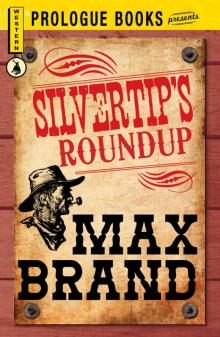 Silvertip's Roundup
Silvertip's Roundup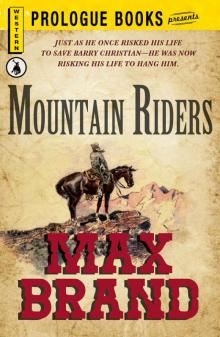 Mountain Riders
Mountain Riders Silvertip (1942)
Silvertip (1942)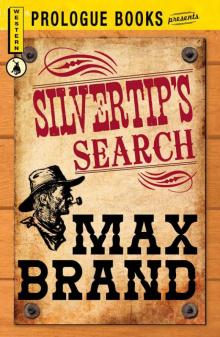 Silvertip's Search
Silvertip's Search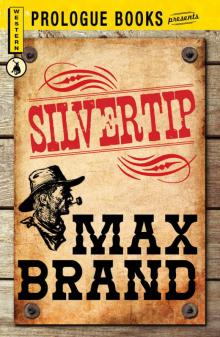 Silvertip
Silvertip Bull Hunter
Bull Hunter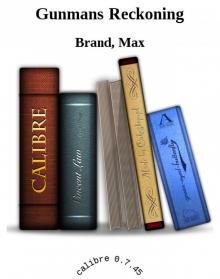 Gunmans Reckoning
Gunmans Reckoning The Seventh Man
The Seventh Man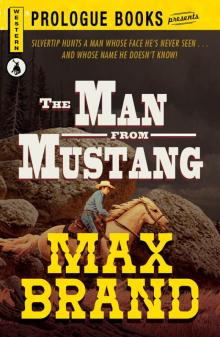 Man From Mustang
Man From Mustang Riders of the Silences
Riders of the Silences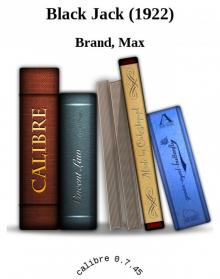 Black Jack (1922)
Black Jack (1922) Way of the Lawless
Way of the Lawless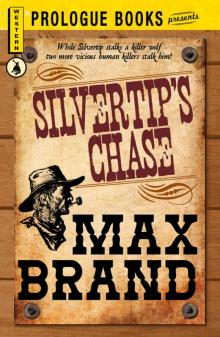 Silvertip's Chase
Silvertip's Chase Trailin
Trailin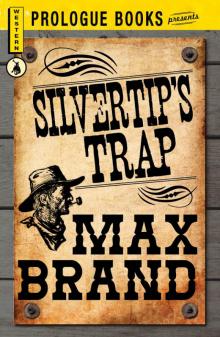 Silvertip's Trap
Silvertip's Trap Ronicky Doone (1921)
Ronicky Doone (1921) The Night Horseman
The Night Horseman the Garden Of Eden (1963)
the Garden Of Eden (1963)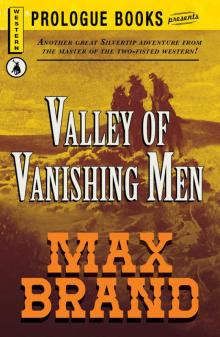 Valley of the Vanishing Men
Valley of the Vanishing Men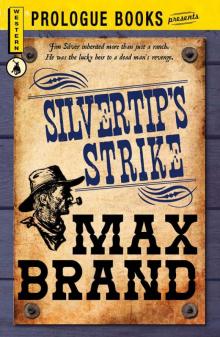 Silvertip's Strike
Silvertip's Strike Black Jack
Black Jack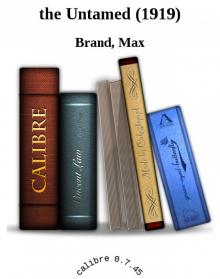 the Untamed (1919)
the Untamed (1919) Way Of the Lawless (1921)
Way Of the Lawless (1921) The Untamed
The Untamed